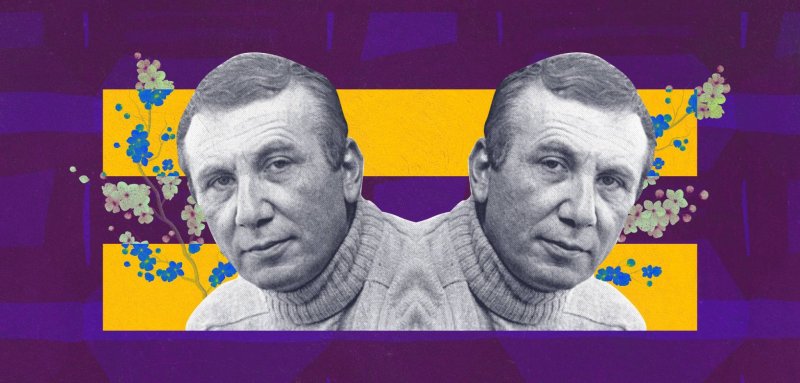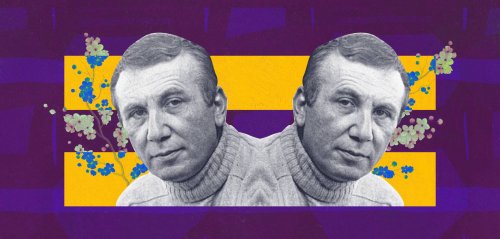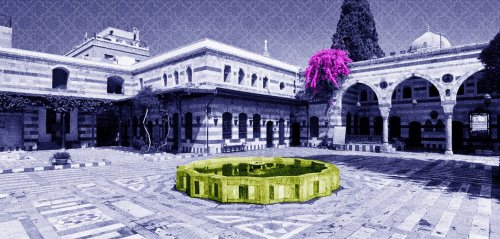Throughout the year of 2020, classical music lovers and enthusiasts were treated to concerts in the largest opera houses of the world to celebrate the 250th anniversary of the birth of German composer Beethoven. However, the Covid pandemic led to the cancellation and postponement of most of these concerts, while some were recorded and played "online" in empty concert halls. The people of Germany were particularly saddened by this delay, as nations usually wait for the anniversary of the death or birth of their geniuses, to celebrate them and lift their heads in pride among other nations to say that they birthed that genius musician, master painter, or creative novelist.
In Egypt, for example, the national celebration of the 100th anniversary of the birth of Naguib Mahfouz was scheduled on December 11, 2011, had it not been for the security unrest that accompanied the fall of President Hosni Mubarak at the beginning of that year. The celebrations that day were limited to a few seminars and university lectures, along with the reissue of most of his well-known novels, from "Midaq Alley" and The Cairo Trilogy – “Palace Walk”, “Palace of Desire” and “Sugar Street” – to his most famous work "Children of Our Alley". Meanwhile in Austria, the so-called "Mozart Week" has been celebrated annually since 1956 (27 January – February of each year) through a series of concerts and performances.
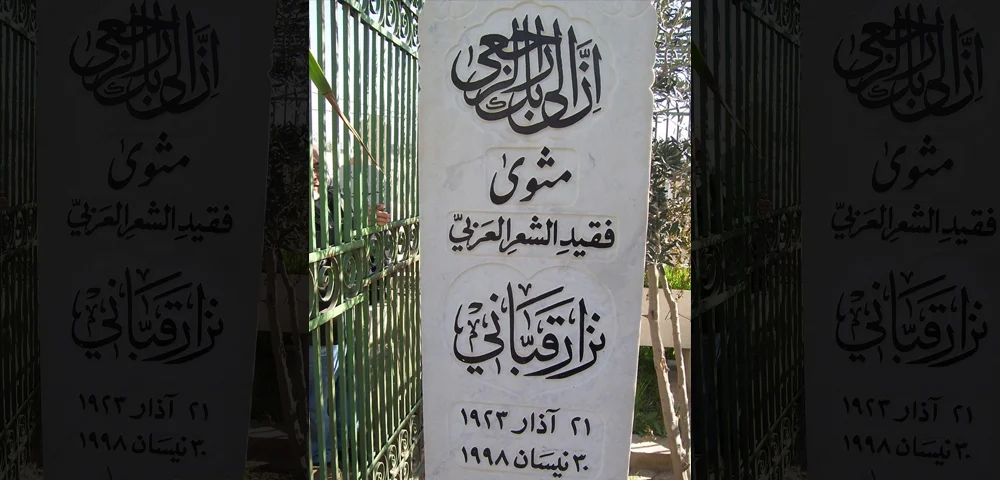
Even in Syria, the city of Aleppo celebrated the millennium of famous poet Abu al-Tayyib al-Mutanabbi in December 1935 and held a prestigious literary evening of Arabian poetry at the Baron Hotel with the participation of distinguished poets like al-Akhtal al-Saghir, Omar Abu Risha, and others. Ten years later, the Arabic Language Academy organized a grand celebration of the millennium of philosopher and poet Abu Ala' al-Ma'arri on December 25, 1944, held in the amphitheater of Damascus University under the patronage and presence of President Shukri al-Quwatli. The Syrian state had allocated 40,000 Syrian pounds for the celebration, which included a lecture by Dr. Taha Hussein in the cities of Damascus and Maarat al-Numan, along with the publication of a book on al-Ma'arri presented by the great poet Khalil Mardam Bey. A famous statue of al-Ma'arri was erected at the time, and remained standing until it was toppled and beheaded during the Syrian war in 2013.
Germans have Beethoven, Austrians have Mozart, and Syrians have Nizar Qabbani. As the centenary of Qabbani passes, it's hard to deny his influence on Arabic poetry and Syrian society. But it seems that only a few in Syria were aware of the momentous occasion
Today marks the 100th anniversary of the birth of Nizar Qabbani, the most famous poet of Syria and the Arab world in the modern era, who was born in Damascus on March 21, 1923 and died in London on April 30, 1998. Given the many concerns and challenges in Syria, it seems that this occasion has fallen from the collective memory of Syrians, and only a few people remembered it. Among these people is journalist Nidal Qushaha, who wanted to organize a televised seminar in Nizar’s old house in the al-Shahem Minaret district in the center of Old Damascus, in the presence and participation of great music artists who sang his poetry verses, such as Najat al-Saghira, Kadim al-Sahir, Majida el-Roumi, and contemporaries who knew him closely such as the writer Colette Khoury. However, the country's circumstances and the devastating earthquake that struck Syria on February 6, 2023, prevented this from taking place during this time.
Nizar himself wrote about his birthday, saying, "I was born on March 21, 1923 in one of the old houses of Damascus. The land was also in a state of birth, and spring was preparing to open its green arms. The earth and my mother conceived at the same time, and gave birth at the same time. Was it a coincidence that I was born in the season when the earth revolts against itself, and the trees throw away all their old garments? Or was it destined for me to be like the month of March, the month of change and transformations? All I know is that I was born on the day when nature was carrying out its coup against winter, asking the fields and grass to support it in its coup against earth’s routine."
Given the many concerns and challenges in Syria, this occasion seems to have fallen from the collective memory of Syrians, and very few people remember it
Critics may disagree on evaluating Nizar's poetry, but no one can deny how important and popular the man is to this day, a quarter of a century after his death. In 2017, Syrian sculptor Wissam Qatarmiz designed a beautiful statue of Nizar that was placed in the lobby of the Damascus Opera House in a ceremony held by the Ministry of Culture, while another statue displayed in Cleveland, Ohio, was designed by Syrian artist Leila Khoury. Before that, there was a television series about the life of Nizar Qabbani, directed by Bassel al-Khatib, in which the Syrian star Taim Hassan played the role of Nizar in his youth, and the star Salloum Haddad played the role of an older Nizar.
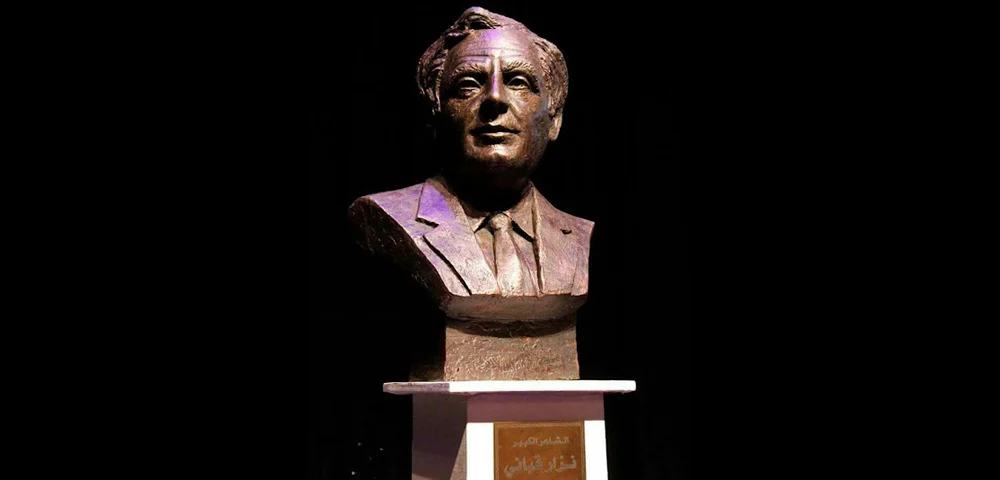
Nizar Qabbani began his literary career in 1943 and did not stop writing except during periods of deep sadness and grief, such as the day his son Tawfiq died or when his Iraqi wife Balqis al-Rawi was killed in 1981. His elegy for his son speaks of the cruel, overwhelming force of death that attacks mankind suddenly and without warning, with the words:
“O Tawfiq,
If Death had a son, he would know what the death of sons is
And if Death had a mind
We would ask him how he explains the death of nightingales and jasmine
And if Death had a heart
He would hesitate to slaughter our good children”..
However, he did not receive any medal of merit from his country, even though he was the most deserving of the Syrian Order of Civil Merit (a decoration awarded in recognition of a person’s distinction and exceptional merit in service to the state or to the Arab cause), and has always sung the praises of the capital of the Umayyads, describing the glories of Arabs in verses like: "Umayyad's flags are raised.. And her horses are attached to mine”, in reference to when the Umayyads’ raised banners when they conquered Andalusia.
It was only in the very last weeks of his life that a street was named after him in his hometown of Damascus, after more than half a century of poetry. He was so pleased with this gesture that the last thing he wrote was of his gratitude to the city that raised him as its son and honored him as its poet.
“Was it a coincidence that I was born in the season when the earth revolts against itself, and the trees throw away all their old garments? Or was it destined for me to be like the month of March, the month of change and transformations?”
We would have liked Nizar's centenary to be different, like the millennium of al-Mutanabbi, al-Ma'arri and other great poets, remaining present in the collective memory of millions of people, whether with or without a celebration. This man is to Syria, what Beethoven is to the German people, Mozart to Austria, or Chaplin to world cinema, a leading figure, pioneer and a legend that time cannot repeat.
Raseef22 is a not for profit entity. Our focus is on quality journalism. Every contribution to the NasRaseef membership goes directly towards journalism production. We stand independent, not accepting corporate sponsorships, sponsored content or political funding.
Support our mission to keep Raseef22 available to all readers by clicking here!
Interested in writing with us? Check our pitch process here!
